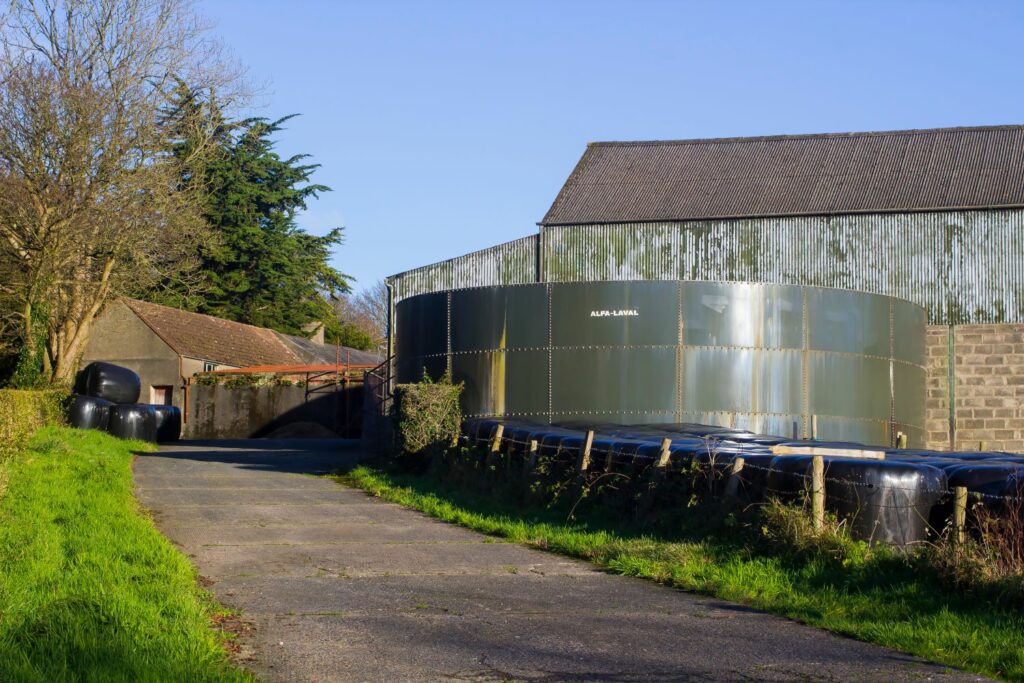Farmers urged to ‘look at the bigger picture’ as slurry grant deadline looms
11th January 2023
Livestock farmers producing slurry are being encouraged to consider future plans when applying for the slurry infrastructure grant scheme that closes to applicants on 31 January.
The grant is being offered by the government to help beef, dairy and pig farmers overcome cost barriers to replacing or upgrading their slurry storage.
The scheme was launched to encourage more environmentally sustainable farming practices by bringing more slurry storage systems up to modern standards.
“Farmers are meant to have six months’ storage, but the government has realised that many don’t, because a store that size is expensive to build,” said Carter Jonas Associate Gillian Wilsher.
“However, if this is the carrot, then I imagine in five years’ time it may be replaced by a big stick if you don’t take them up on this offer,” he added.
Farmers receiving a grant will have approximately 50% of their building costs covered, with total payments ranging from £25,000 to £250,000. However, the grant will only contribute to the estimated cost of storing slurry for current stocking rates for six months.
“If you have plans to increase your herd, it may be more cost effective to consider increasing the capacity of your storage now, even though the increased capacity will not benefit from the grant funding,” Ms Wilsher advised.
“Looking at the bigger picture and considering your long-term plans is essential.”
Ms Wilsher suggested farmers carefully consider the location of the slurry store in light of any future plans for development. She pointed out the easiest place is not necessarily the most appropriate and the surrounding environment and watercourses must be taken into account.
“Consider whether your drainage networks are working efficiently to keep clean and dirty water separate,” she added. “If your clean water drains are also entering the slurry store this will increase the capacity required significantly and water down your slurry, increasing spreading costs to apply the same amount of nutrients.”
Ms Wilsher also recommended farmers consider whether third parties will need access to their slurry store outlets.
“As the price of fertiliser has increased significantly, the value of slurry is also a significant consideration,” she stressed.
In addition, farmers should keep in mind that the grants will be paid in segments to reimburse development costs and the business will need to fund the entire project initially.
“Given the substantial expenditure potentially involved it is important that the financing should be carefully considered, especially as we are now seeing interest rates rising,” Ms Wilsher said.
“It may be possible to fund some projects with capital or through the overdraft facilities for the short term while awaiting the grant reimbursement.
“For larger expenditure which cannot be covered by existing funds I would recommend speaking to your bank manager or local AMC agent at the earliest opportunity to discuss your options.”
Defra is expecting to receive a high volume of applications for the scheme, therefore projects that yield the greatest environmental benefits will need to be prioritised.
Successful initial applicants will be invited to submit a full application, for which planning permission must be secured.
“It would therefore be worthwhile engaging with your planning consultant at an early stage as planning applications can take longer than expected, especially if the planning authority has limited knowledge of agricultural practices,” Ms Wilsher advised.
Farmers can still check eligibility for the scheme using the government’s Online Checker.

